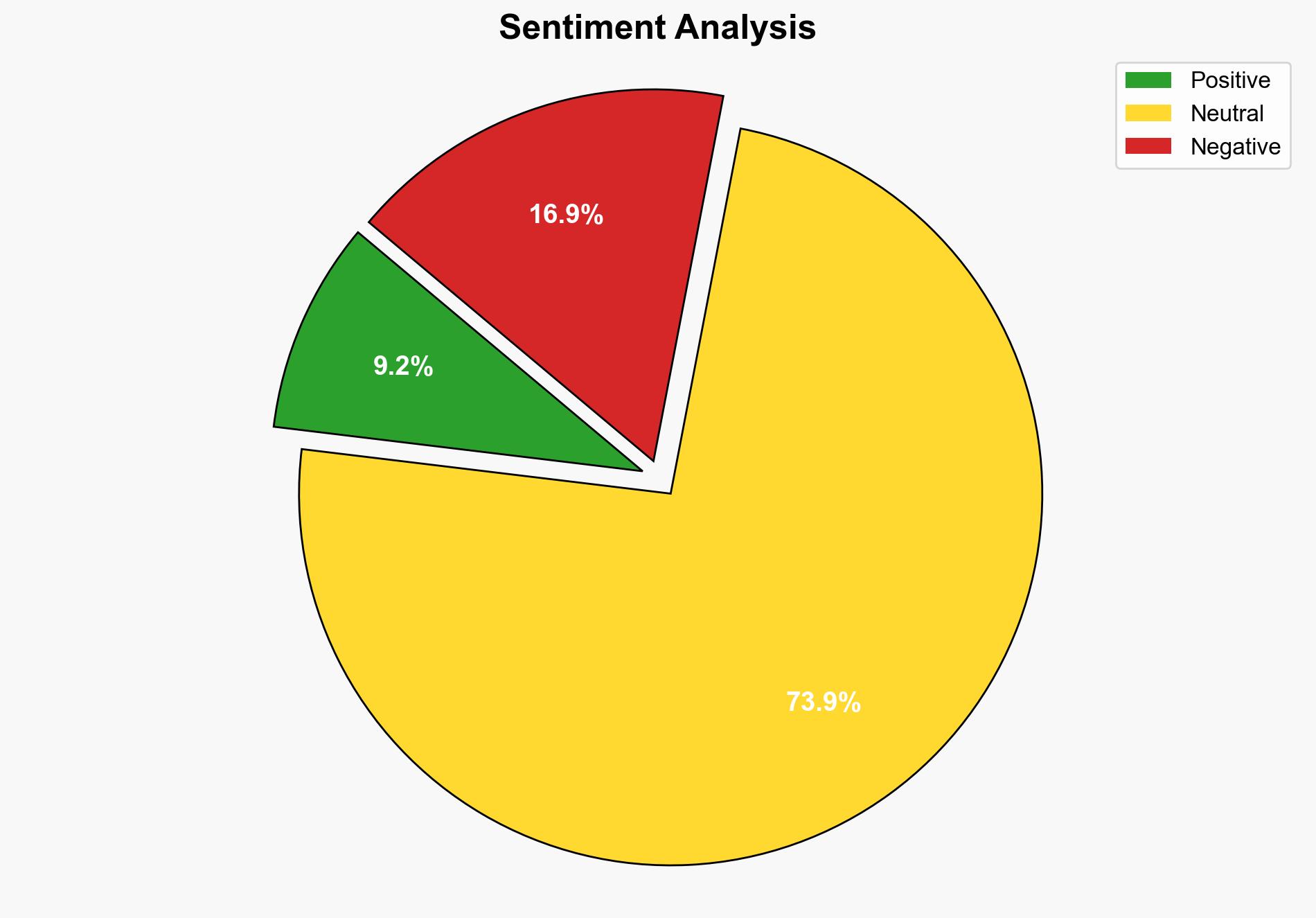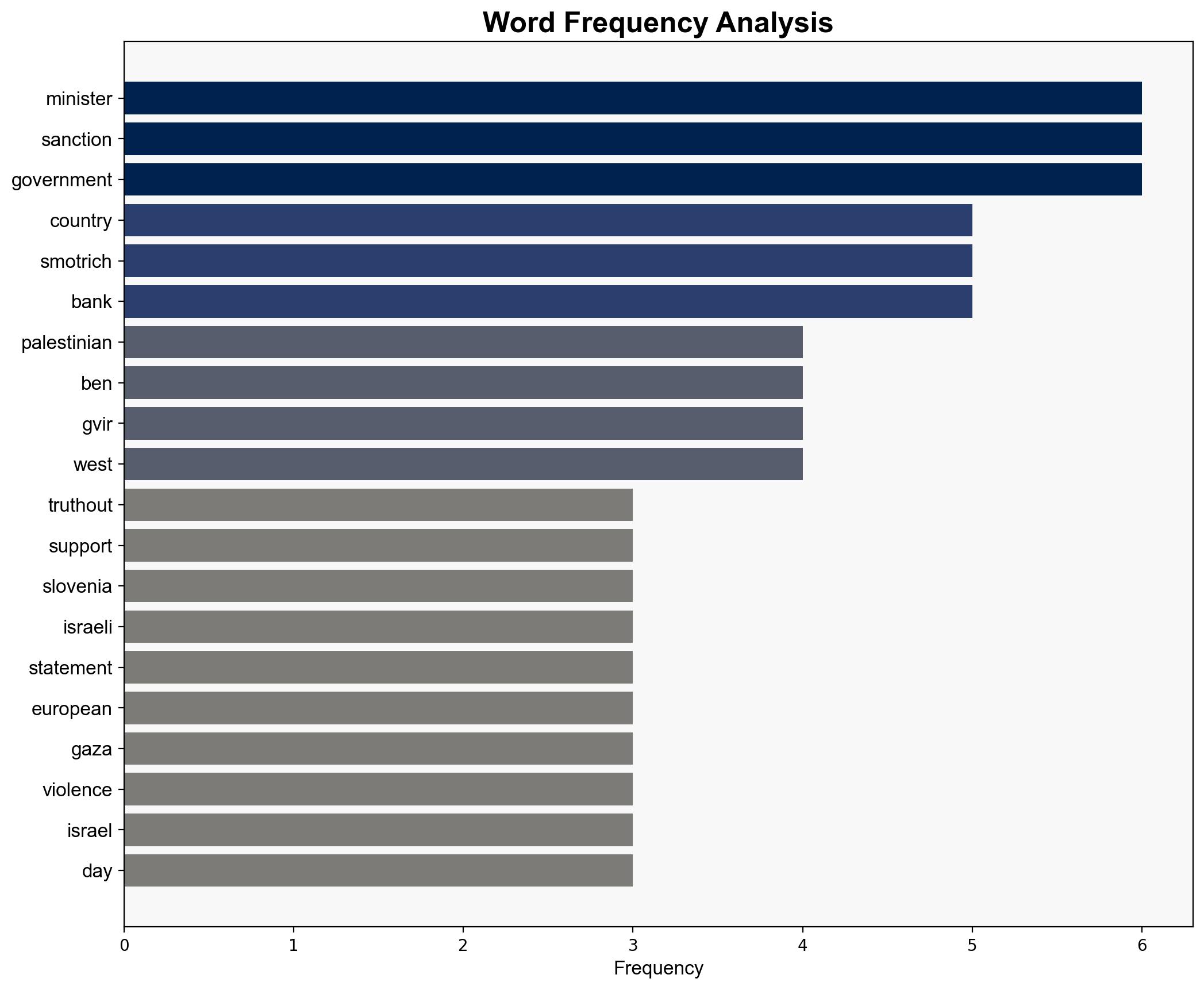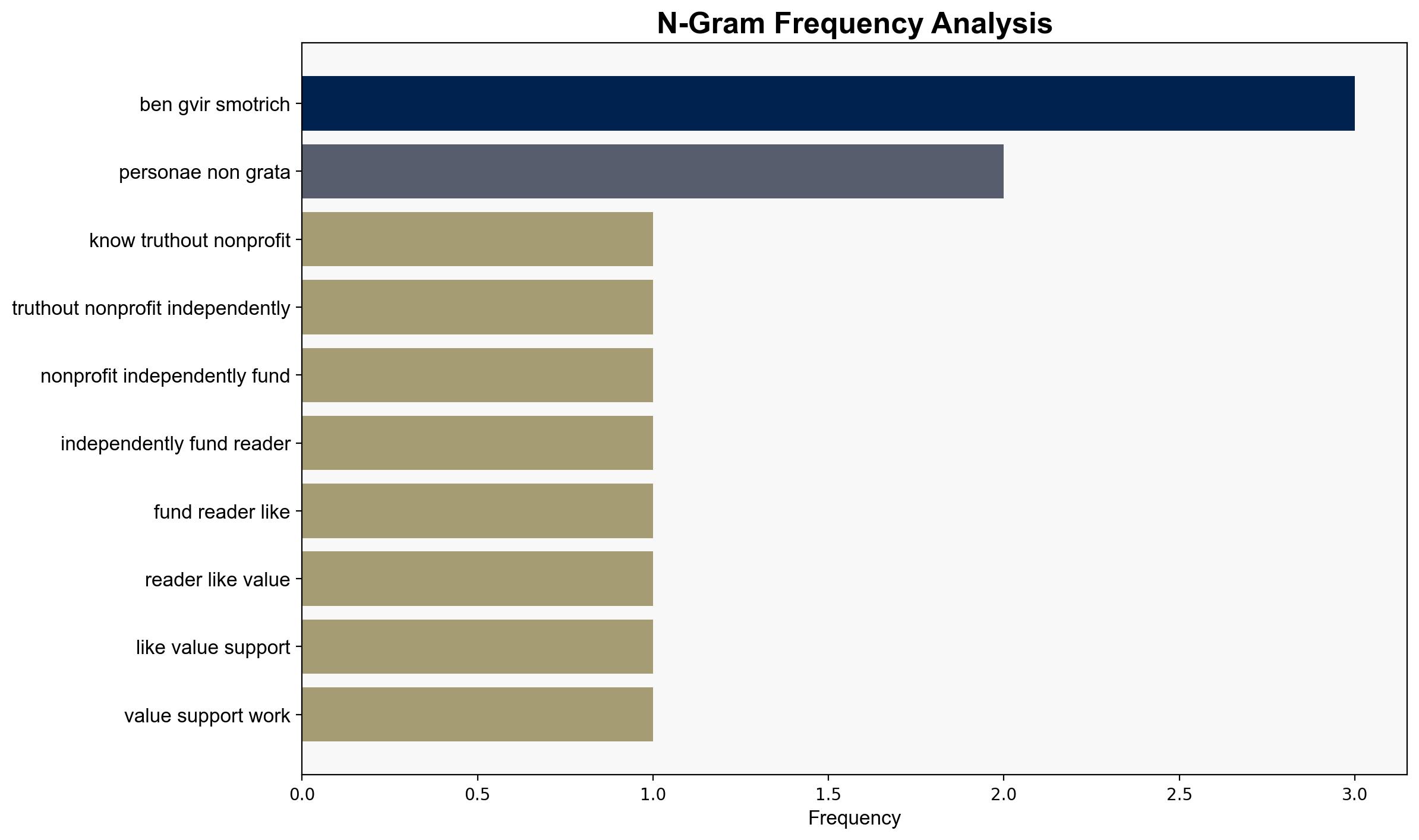Slovenia Bans Israeli Ministers Smotrich and Ben-Gvir for Genocidal Statements – Truthout
Published on: 2025-07-18
Intelligence Report: Slovenia Bans Israeli Ministers Smotrich and Ben-Gvir for Genocidal Statements – Truthout
1. BLUF (Bottom Line Up Front)
Slovenia has declared Israeli ministers Itamar Ben-Gvir and Bezalel Smotrich as personae non grata due to their statements perceived as genocidal and inciting violence against Palestinians. This move, unprecedented within the European Union, aims to pressure Israel to halt actions in Gaza and the West Bank. The decision aligns Slovenia with other nations like Norway, Australia, New Zealand, and Canada, which have imposed sanctions on these individuals. The implications for EU-Israel relations and regional stability are significant.
2. Detailed Analysis
The following structured analytic techniques have been applied to ensure methodological consistency:
Cognitive Bias Stress Test
The decision by Slovenia may be influenced by a growing European sentiment against Israeli policies in Palestinian territories. This analysis challenges assumptions about EU unity on foreign policy and highlights potential biases in interpreting Slovenia’s actions as isolated rather than part of a broader trend.
Bayesian Scenario Modeling
Probabilistic forecasting suggests a moderate likelihood of increased diplomatic tensions between Israel and EU countries, with potential for escalation if additional EU members adopt similar measures. The likelihood of economic impacts on Palestinian territories remains high if Israeli financial restrictions persist.
Network Influence Mapping
The influence of Slovenia’s decision could extend to other EU nations, potentially leading to a coalition advocating for stronger measures against Israeli policies. Non-state actors, including human rights organizations, may leverage this decision to amplify calls for broader sanctions.
3. Implications and Strategic Risks
The Slovenian action introduces a new dynamic in EU-Israel relations, potentially leading to a fragmented EU stance on Middle East policies. This could exacerbate existing tensions within the EU regarding foreign policy coherence. Additionally, the economic impact on Palestinian territories could destabilize the region further, increasing the risk of conflict spillover.
4. Recommendations and Outlook
- Encourage diplomatic dialogue between EU members to ensure a cohesive approach to Middle East policies, reducing the risk of fragmented responses.
- Monitor economic conditions in Palestinian territories to assess the impact of Israeli financial restrictions, preparing contingency plans for humanitarian assistance if necessary.
- Scenario-based projections:
- Best Case: EU consensus leads to constructive engagement with Israel, resulting in policy shifts and reduced tensions.
- Worst Case: Escalation of diplomatic rifts within the EU and between the EU and Israel, leading to economic and political instability in the region.
- Most Likely: Incremental adoption of Slovenia-like measures by other EU nations, maintaining diplomatic pressure on Israel without significant immediate policy changes.
5. Key Individuals and Entities
Itamar Ben-Gvir, Bezalel Smotrich, Tanja Fajon
6. Thematic Tags
national security threats, regional stability, EU foreign policy, Middle East conflict




